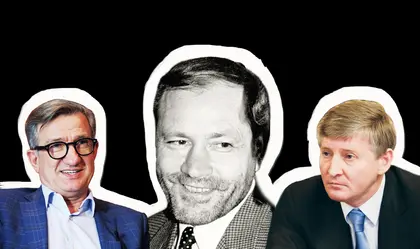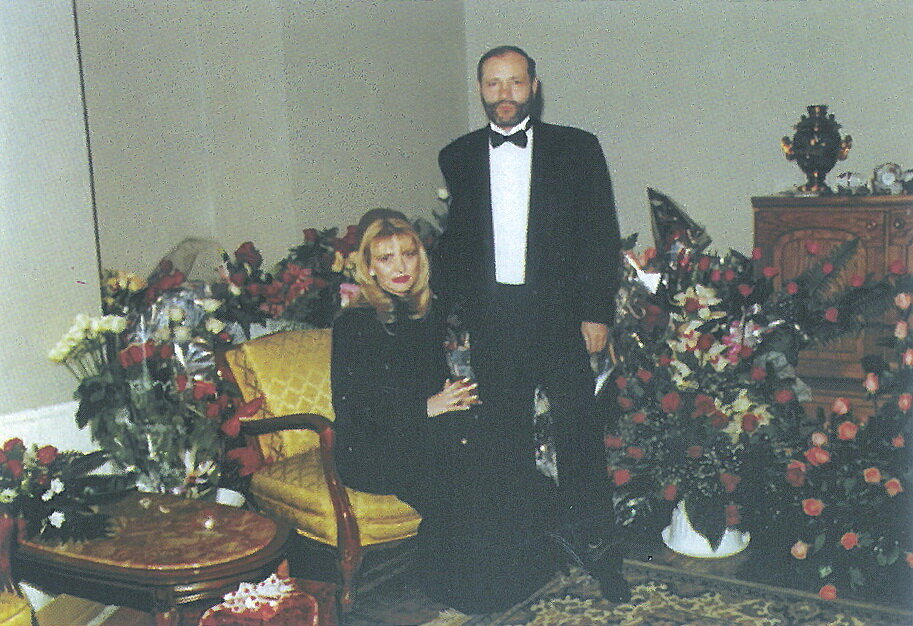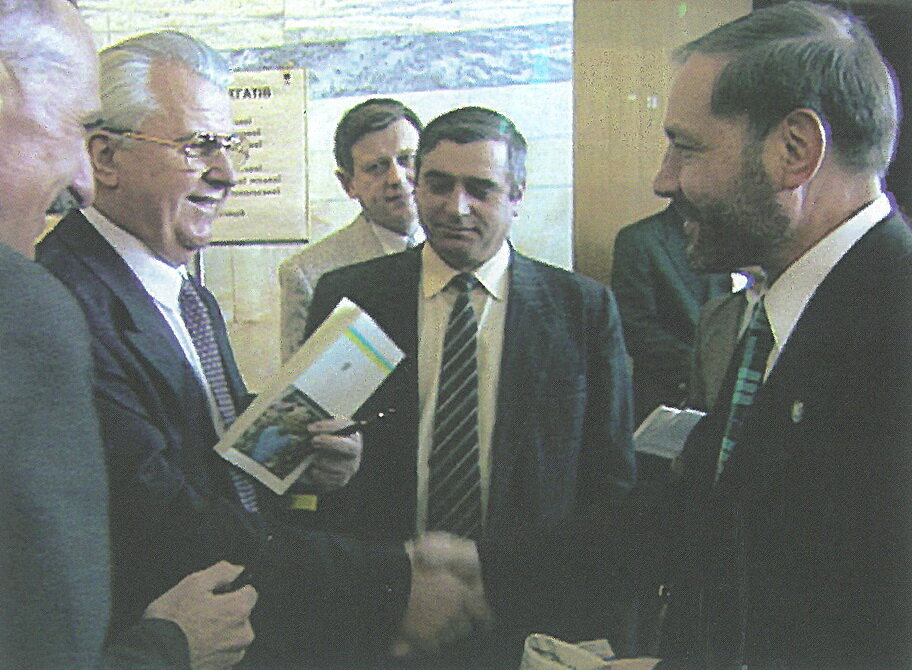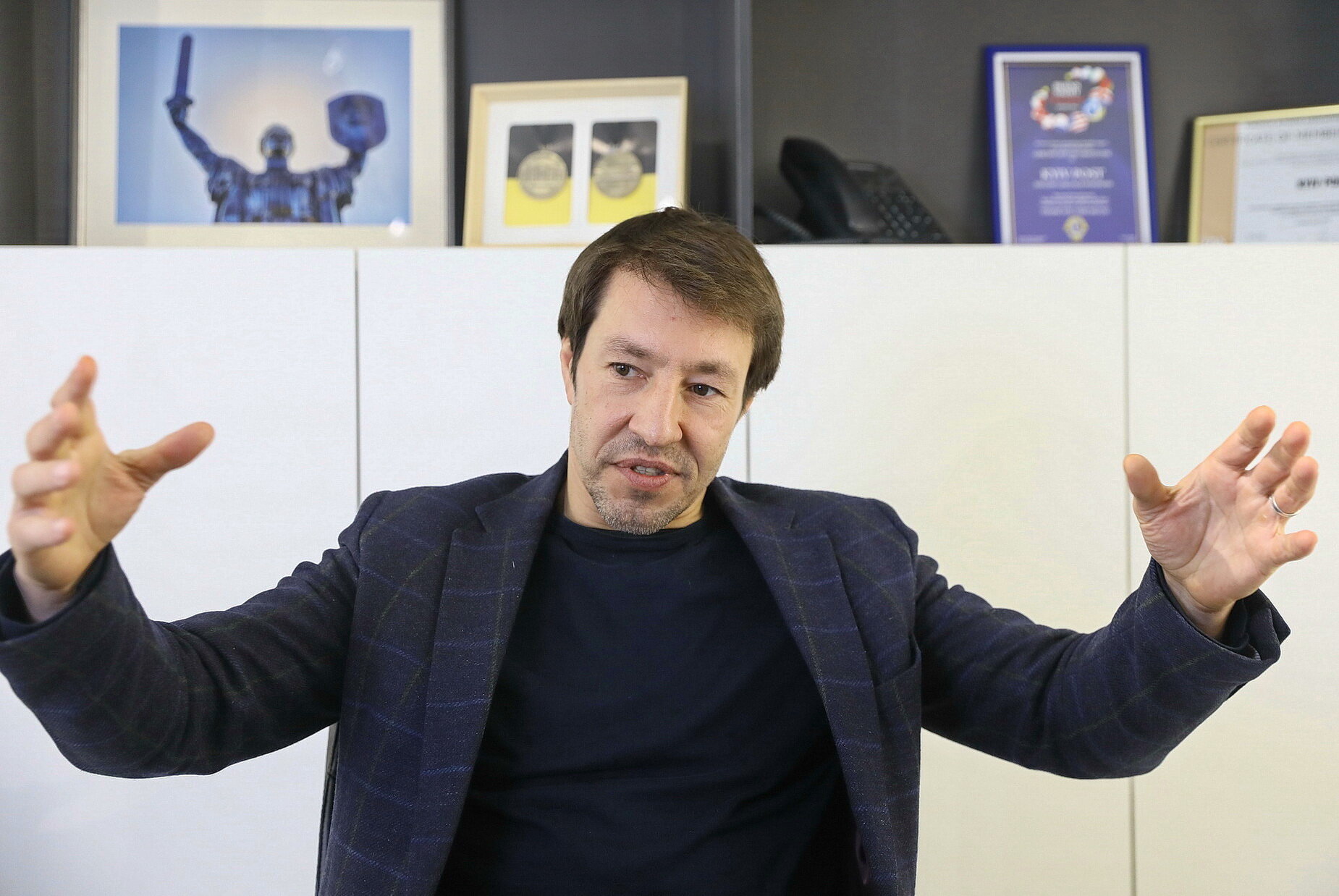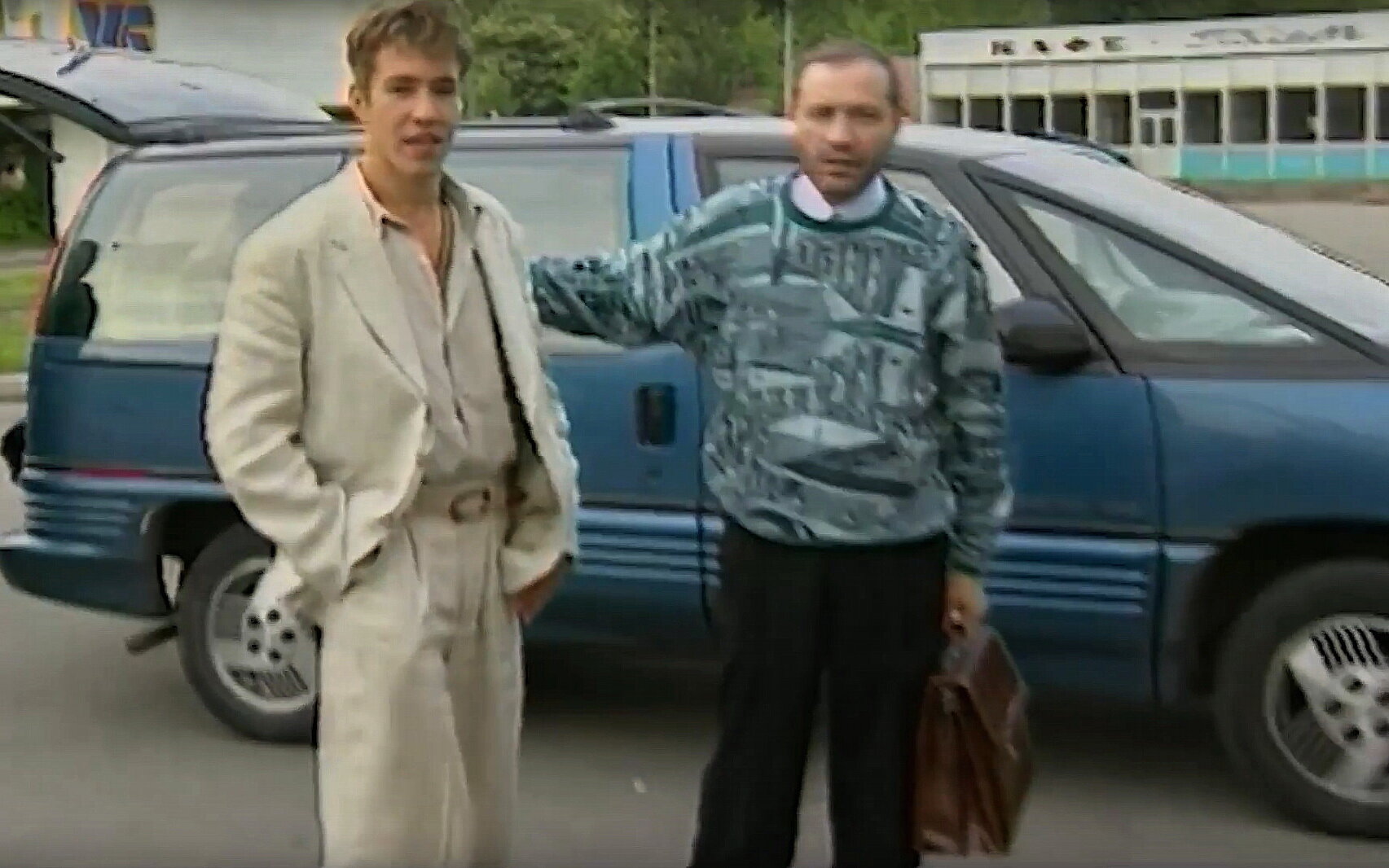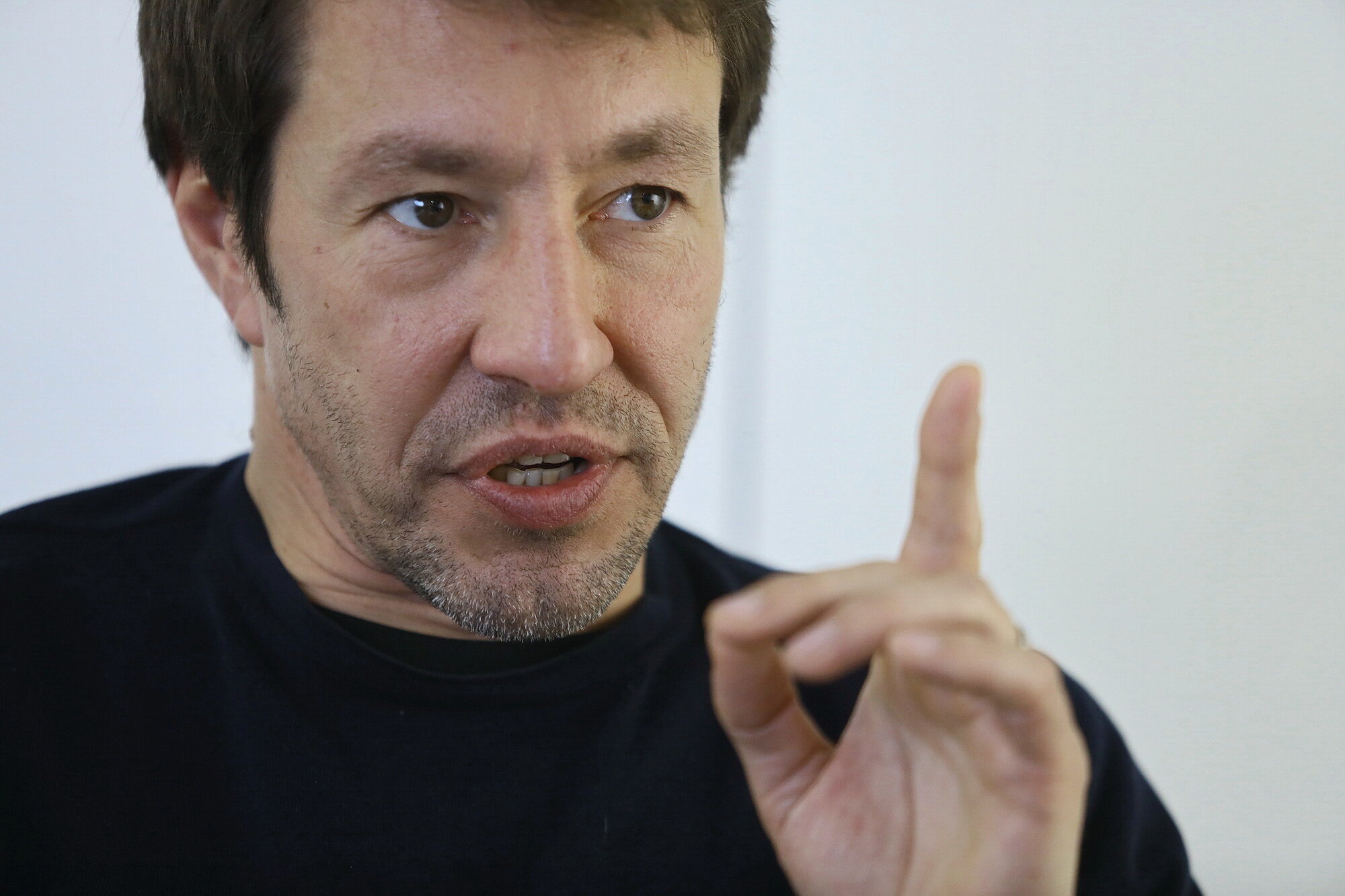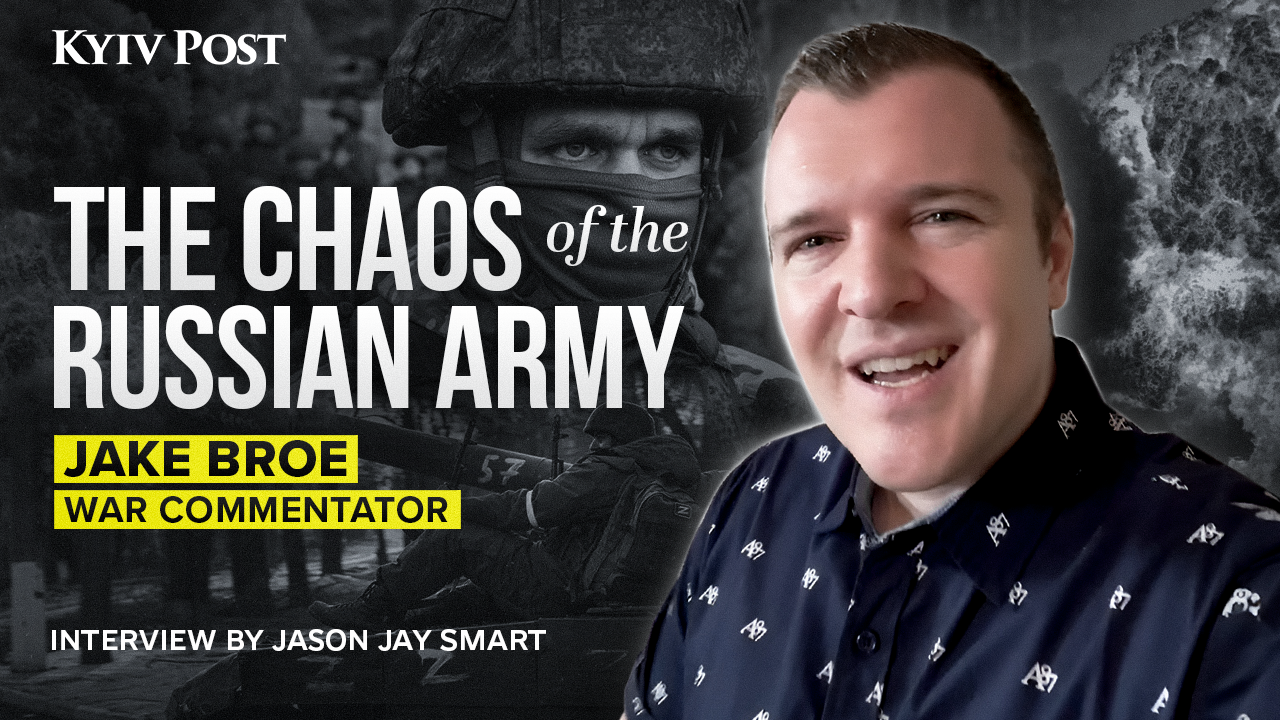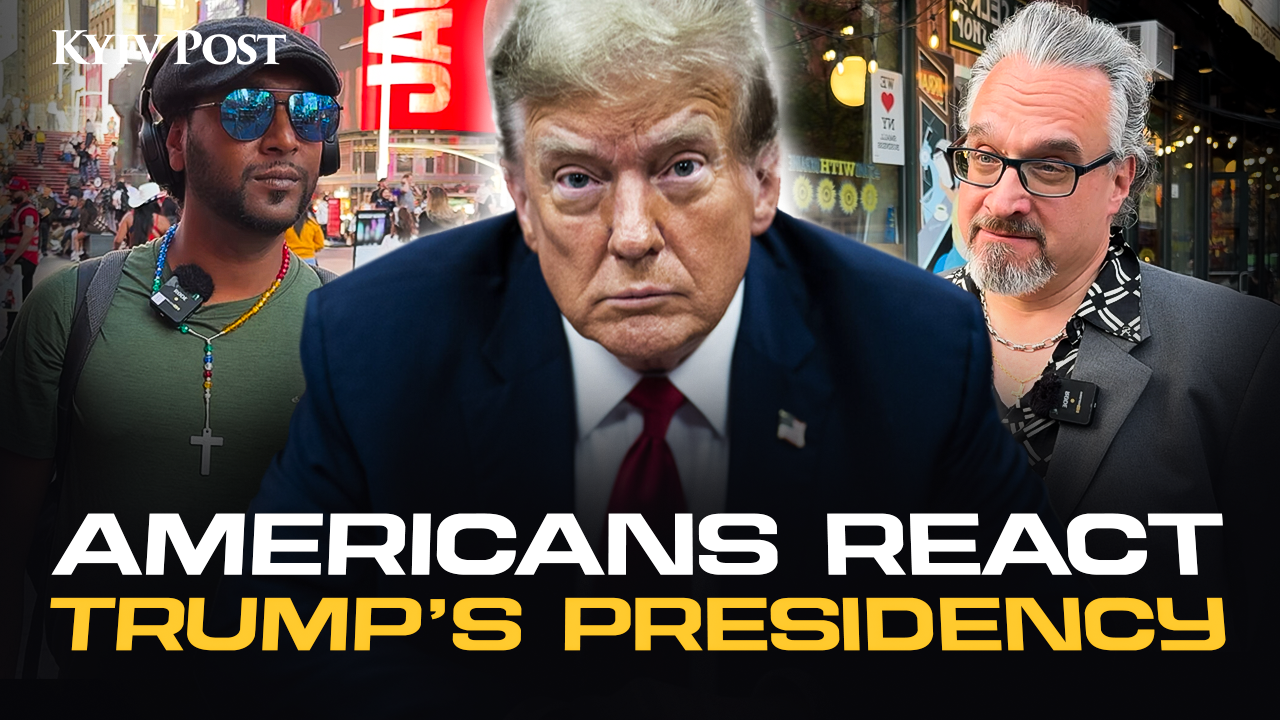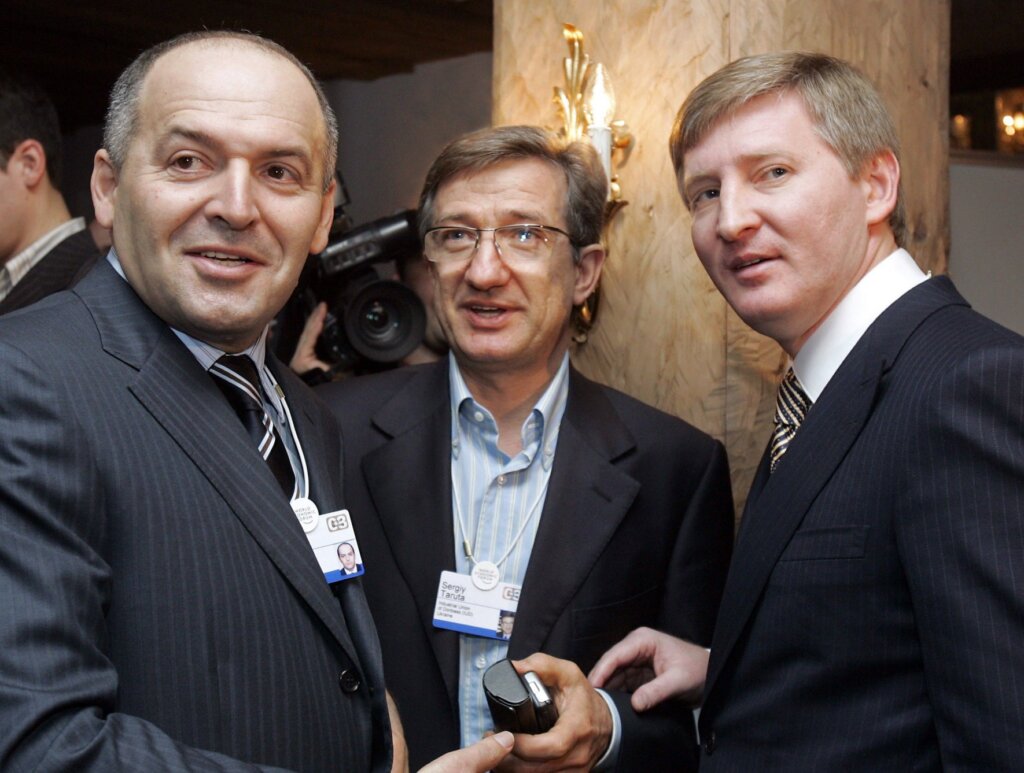For many in today’s Ukraine, the name of Yevhen Shcherban is a distant memory.
But his life and, even more so, his death shaped the country as we know it.
JOIN US ON TELEGRAM
Follow our coverage of the war on the @Kyivpost_official.
In the 1990s, Shcherban was the almighty business mogul of eastern Ukraine — “the master of the Donbas” and Ukraine’s first oligarch. Years before the “richest Ukrainians” rankings, he was most likely the richest man in the country.
It all came to an abrupt end. In 1996, Shcherban was brazenly murdered as he stepped off a private jet in Donetsk airport.
His killing led to a redistribution of power in the Donbas and the country.
It led to the rise of Rinat Akhmetov as the richest man in the Donbas. It improved President Leonid Kuchma’s chances for a second term. It cleared the way for the ascension of Viktor Yanukovych, who would go on to become president and lead the country to bloodshed.
See also: Guide to who’s who in this story
Several gunshots at the Donetsk airport in November 1996 largely shaped Ukraine as we know it now.
Even 24 years later, who ordered the murder of Shcherban remains an open question.
Now, new evidence suggests foul play determined how Shcherban’s legacy is remembered and how his fortune was redistributed.
After the murder, his business empire vanished — but some say it ended up in the hands of today’s oligarchs.
After years of investigating the fate of his father’s business, his eldest son Yevhen Shcherban Jr. accuses oligarchs Rinat Akhmetov and Serhiy Taruta of seizing the Donbas tycoon’s assets and cheating the family out of their inheritance.
“They cheated us,” he says. “They conspired and benefitted from the murder.”
Akhmetov and Taruta, who worked with Shcherban, deny they did any such thing.
The murder
It was Nov. 3, 1996. Shcherban stepped out of a private jet, followed by his wife and one of his three sons, Ruslan.
They had landed in Donetsk, the industrial center of eastern Ukraine, and of Shcherban’s business empire. The family was returning from Moscow, where they went for the celebration of singer Iosif Kobzon’s wedding anniversary. Kobzon later recalled that they seemed like they were having the time of their life at the party, spending the night taking photos with celebrities.
Shcherban was 50 years old, and his life was on the upswing. A former manager of a state-owned mine, he quickly climbed his way to the top of the young country’s business world. He was a co-founder and main figure of the Industrial Union of Donbas (known in Ukraine as ISD), a joint venture of the most powerful businessmen of the region.
Politics attracted him, too. He was a lawmaker with his own party, and planned to make one of his allies the next president.
Finally, he had three sons and was happily married. He used to tell his sons: “You have no idea how rich we are.” He was only about to get richer.
He stepped from the plane and headed to his car, a bulletproof Chevrolet Caprice.
Two men were walking by the plane. Suddenly, they drew submachine guns.
The first shot hit Shcherban in the back of his head. Others killed his wife and two airport staffers.
The investigation into who organized the murder is still open, 24 years later.
Officially, the investigation’s only suspect remains Pavlo Lazarenko, Ukraine’s scandalous ex-prime minister, who embezzled at least $200 million from the country and was convicted in the U.S. on money laundering charges. It is alleged that Lazarenko organized the murder of Shcherban to clear the way for his gas selling company to do business directly with the Donbas companies.
In 2013, Yulia Tymoshenko was accused of organizing the murder with Lazarenko. At the time, Tymoshenko was an opponent and political prisoner of Viktor Yanukovych, who was under pressure from the West over her conviction.
She denied the accusations and, in turn, accused Yanukovych, saying that Shcherban’s murder benefited him and Akhmetov, his party’s sponsor.
One of Shcherban’s sons, Ruslan Shcherban, was a witness of the prosecution. He said that his father had a business conflict with Tymoshenko and Lazarenko and received threats from them. He repeated that in an open letter to then-U.S. Ambassador John Tefft.
His brother Yevhen Shcherban was also questioned, but knew nothing of Tymoshenko’s role. Still, to his astonishment, he was offered to sign a pre-drafted testimony that said he knew of his father’s hostilities with Tymoshenko.
“When you don’t know where to look, follow the money,” Shcherban says. “I’m thinking about who profited from the murder. Tymoshenko didn’t profit from it.”
“But that interrogation was my wake-up moment,” he adds.
Not only did he realize the investigation was shady, but he heard for the first time that his father was a co-founder of ISD. It made him wonder what happened to his share of the company.
The empire
Reconstructing all the parts of Shcherban’s business empire is nearly impossible today.
Shcherban traded metal, alcohol, steel pipes and gas. He owned factories, restaurants, a bank, and even one of Ukraine’s first mobile carriers, DCC.
Like many at that time, Shcherban seized the opportunity to fill in the gaps left by the dissolution of the Soviet “planned economy.” The break-up of the Soviet Union disrupted the supply and distribution chains, often leaving huge enterprises helpless and cashless.
A metal plant would keep producing metal but not know where to sell it and have no cash to pay the bills and salaries. Quick-minded early businessmen like Shcherban would help them out: Pick up the metal, find a pipe-making plant that needs it, pick up some pipes as payment, find someone who needs the pipes, and so on.
The businessmen were making fortunes in the process, while the enterprises deteriorated. Then, they could privatize them cheaply.
“It is easy for people like me to make money today,” Shcherban said in one archive video. “The country after the Communists is like a clean sheet of paper. Anyone can get rich — and legally so.”
In the last year of his life, Shcherban’s focus was on ISD.
ISD was a business venture co-founded by several of the most powerful people in Donetsk Oblast.
One of its most important functions was to serve as an intermediary for all gas that was supplied to the region — and take their cut from it.
But ISD’s interests clashed with those of another powerful group — United Energy Systems of Ukraine, or UESU. It was controlled by Yulia Tymoshenko and, unofficially, Prime Minister Pavlo Lazarenko.
UESU was Ukraine’s main importer of natural gas from Russia and Central Asia. The company was eyeing Donetsk Oblast, the nest of heavy industry that consumed a lot of gas.
UESU wanted to sell gas to them directly. Shcherban and his partners wanted UESU to go through them.
In 1995, the two groups — known as the Donetsk clan and the Dnipropetrovsk clan — reached an agreement. ISD was to be an intermediary between UESU and gas consumers in the region.
Apart from gas, ISD traded pipes and metal.
According to Yevhen Shcherban, ISD’s turnover in its first year of work was $480 million, according to the documents he recovered. His father planned that the company would be making $200 million a year in profit.
When Shcherban was killed, his heirs knew little, if anything, about this new venture. No one hurried to tell them.
Serhiy Taruta
When Shcherban was murdered, his three sons got a surprisingly modest inheritance. It included a shell of a bank, a mineral water factory and some real estate that could be sold or rented.
What happened to everything else, including the crown jewel, the Industrial Union of Donbas?
Yevhen Shcherban Jr. is sure that it was taken over by Shcherban’s partners, Taruta and Akhmetov.
ISD had several founders. Each founder was represented by a company in the union: Shcherban by Azovimpeks; Rinat Akhmetov by DonGorBank; Vitaly Gaiduk by Vizavi; and Aleksandr Momot by Danko. Meanwhile, Taruta was hired as the executive director of ISD.
Then, two of the founders, Momot and Shcherban, were killed.
This is where the ownership of ISD gets blurry, and Taruta emerges as the co-owner of the enterprise.
The explanations why differ. Yevhen Shcherban Jr. and his father’s associates say that Taruta was a hired manager and are surprised that he emerged as a co-owner of ISD.
Taruta has offered two explanations. In several interviews and court testimonies, he said that he co-owned Azovimpeks (and, through it, ISD) with Shcherban. In others, he called himself the founder of Azovimpeks with no mention of Shcherban at all.
Such was the case with a 2020 hearing in a London court over a conflict with Gaiduk. Court testimonies suggested that, as of mid-1996, Taruta owned 35% of ISD, with the other partners being Gaiduk and, allegedly, Akhmetov. It’s like Shcherban was never there.
Taruta’s press service didn’t reply to the Kyiv Post’s requests to comment for this story.
“Taruta somehow became the successor of my father’s share of ISD,” says Yevhen Shcherban Jr.
“But it wouldn’t have been possible without what Akhmetov did,” he adds.
Rinat Akhmetov
According to Shcherban, three months after his father’s murder, Akhmetov invited him and his younger brother Ruslan for a meeting.
The two men were 26 and 19 years old. Akhmetov was just 30, but already experienced in the intricacies of doing business in the 1990s Donbas. A year earlier, his senior partner Akhat Bragin was killed during a football game — blown up in a bomb blast — and Akhmetov took charge.
“We were close in age, but incomparable in terms of experience,” says Shcherban.
At the meeting, Akhmetov told the two men that they owed him money. Some $5 million, according to Shcherban.
“He said that the money was missing from the accounts of a company that he co-owned with our father,” Shcherban recalls. “He said that our father had it transferred somewhere, and it was gone. He put up these documents in front of us, which I didn’t understand that well.”
According to him, Akhmetov wanted the two heirs to recognize the debt. Then the meeting was over.
“In the doorway, he turned back, looked at us and tapped on his watch,” Shcherban says, repeating the impatient gesture. “He said that the debt must be repaid promptly.”
What happened next, according to him, was deception.
The sons didn’t have enough cash, and Akhmetov agreed to instead accept two companies they inherited: DCC, a mobile carrier, and Gefest, which had gas stations.
But they didn’t know, according to Shcherban, that Gefest was a parent company of Azovimpeks, which co-owned the Industrial Union of the Donbas.
“To repay a debt of several million (dollars), we gave away a company worth many times more, and we had no idea,” says Shcherban.
Akhmetov’s spokeswoman said that Akhmetov acquired his business assets “without violating the rights of any third parties.”
Shcherban doubts that the debt was real. He thinks it could have been a hoax to make them give away the company.
“Our father would often say that we have no debts,” he recalls. “So the debt surprised me. But I was very naive at the time.”
Taruta and Akhmetov continued to be partners in ISD for several years, during which the group privatized the best of the Donbas’ heavy industry. They split around 2002.
Akhmetov, the senior partner, took most of the assets — virtually everything that the group owned in Donetsk Oblast — to his new company, System Capital Management, or SCM.
Taruta and ISD were left with steel plants in Alchevsk and Dnipro. That was still a lot. In 2009, a controlling stake at ISD was sold to a Russian company for $2.7 billion. Taruta was paid $1 billion and continues to own a minority stake in the company.
Akhmetov, meanwhile, holds an estimated wealth of $2.8 billion, according to Forbes Ukraine magazine.
Shcherban says that what was stolen from the family is worth $1 billion today. He says that his father’s work is at the heart of Akhmetov’s and Taruta’s business empire.
Taruta denies it, as do Akhmetov’s representatives.
“SCM was created by Rinat Akhmetov and the SCM management team thanks to their hard work, efforts and professionalism,” Akhmetov’s spokeswoman Anna Terekhova told the Kyiv Post in an emailed statement. “All assets owned by Rinat Akhmetov and SCM Group were acquired and created lawfully, in good faith and without violating the rights of any third parties. We categorically deny all claims and accusations that you refer to.”
The statement also said that “the sons of Yevhen Shcherban previously and repeatedly stated publicly that there were no claims against Rinat Akhmetov regarding their father’s business and assets.” In a 2013 interview, Ruslan Shcherban said that the brothers “are friends with Akhmetov and don’t have any claims against him.”
Ruslan Shcherban and Yevhen Shcherban Jr. disagree on the issue of their father’s inheritance.
In a statement published on Nov. 23, Ruslan Shcherban accused his brother of “making up stories” in order to “sell the memory of our father.”
“I don’t understand why Ruslan is doing that,” says Yevhen Shcherban Jr., adding that they are not currently on speaking terms.
Transformative murder
The murder of Shcherban had far-reaching consequences for more than his family and business partners. It affected the political landscape in the Donbas and Ukraine, as well.
By the time of his murder, Shcherban was a big player in the country’s politics. He used to say he wanted the next president of Ukraine to be from Donbas, and named a concrete candidate: his associate, Governor of Donetsk Oblast Volodymyr Shcherban. They weren’t related.
Those plans died with Yevhen Shcherban. The next presidential election was won by Leonid Kuchma, again.
“His murder was the turning point for the Donbas,” says Serhiy Garmash, a prominent Donbas journalist who covered the region for decades. “It was the decisive blow to the Donetsk clan. They took a long time to recover.”
The Donetsk clan that came to power in 2010, when Yanukovych became president, was a rather different group of people.
Family and biographers of Shcherban recall him as a liberal, true to the name of his party. He was an admirer of the United States, which he often visited, and held it up as an ideal that Ukraine should aspire to reach. A book written about him soon after the murder also mentions that he, a Russian speaker, was studying Ukrainian. He believed that, as a Ukrainian lawmaker, he should be able to speak it in parliament.
“If Shcherban were alive, I don’t think that these people (Yanukovych) would have come to power,” says Garmash.
He believes that the murder of Shcherban benefitted Russia because it aggravated confrontations inside Ukraine and cast suspicion on Kuchma.
“It weakened the president and weakened Ukraine, which was good for Russia,” says Garmash.
Now, the story of Shcherban is about to get attention, again. On Dec. 3, Ukrainian news site Hromadske released a documentary about Yevhen Shcherban Jr.’s search for his father’s legacy.
“In Ukraine’s history there are several important questions without answers,” says Maksym Kamenev, a political reporter who co-authored the documentary. “The story of the Donbas in the 1990s is one of them. It was the start of the Donetsk clan that played a big role in the history of Ukraine. There are many things we don’t know about how it started.”
The murder of Shcherban is a key part of that story.
“It doesn’t matter how long ago it happened,” says Kamenev. “There is no expiration date on stories like this.”
“The Heir” (“Spadkoyemets”), a documentary about Yevhen Shcherban’s search for his father’s legacy, premiered on Nov. 3. Watch it here. The film is in Ukrainian with English subtitles.
Editor’s Note: This report is part of the Investigative Hub project, within which the Kyiv Post monitors investigative reports in the Ukrainian media and brings them to the English-speaking audience, as well as produces original investigative stories. The project is supported by the National Endowment for Democracy.
You can also highlight the text and press Ctrl + Enter


